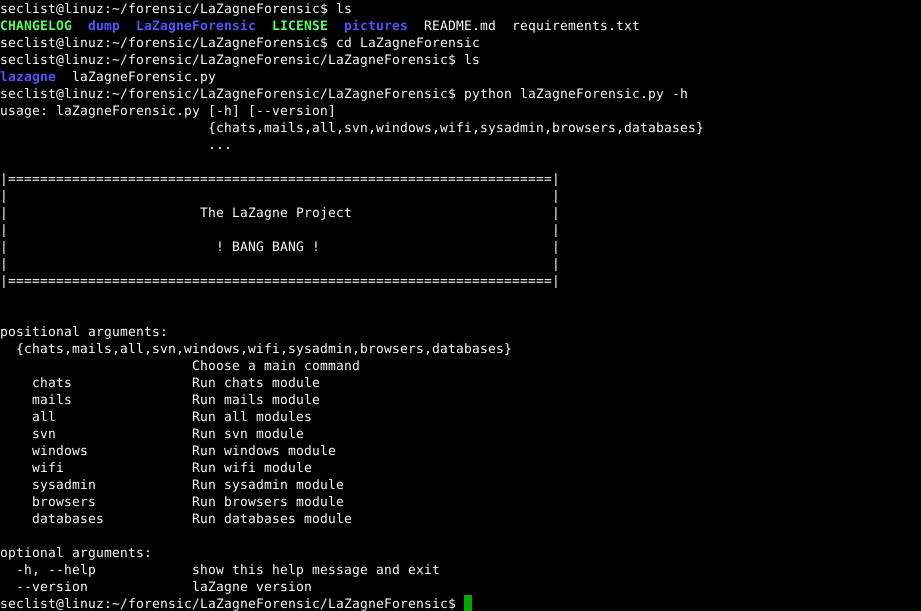LaZagneForensic (LZF) allows each Windows user to recover almost any password stored on the computer.
The LaZagneForensic program reportedly exploits the way Windows work to gain access to sensitive information stored by the users of each system. It is known that all passwords to its systems Microsoft are stored encrypted by Windows. But as soon as the user connects to the system, they are automatically decoded, so that they can be used by the operating system.
The original LaZagne application uses an internal Windows API called CryptUnprotectData to decrypt user passwords. This API starts working with the user's input into the system, otherwise it does not work. If the computer is not started (when the resolution is from a connected offline disk) or if we do not place the application on a remote host, the passwords can not be recovered.

LaZagneForensic was created to overcome this problem. The project has been mainly inspired by Jean-Michel Picod's amazing work on them DPAPICK and Francesco Picasso for the Windows DPAPI laboratory.
That is why LaZagneForensic works after the user logs on to Windows. Then it can easily pick up passwords, and then store them in plain text.
The developer of the application even says that the only way to stay safe is to avoid storing passwords using the default Windows method.
This practically means that for your security you might want to use a third-party password manager.
We occasionally report the password manager KeePass. It is the password manager we recommend as it saves everything locally and with very strong encryption.
The LaZagneForensic app can recover passwords from the following programs: Outlook, Thunderbird, Chrome, Firefox, Internet Explorer, Opera, Pidgin, Filezilla, wifi, databases, Skype, etc.





